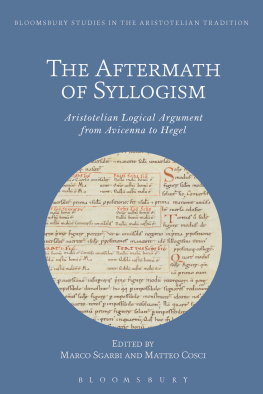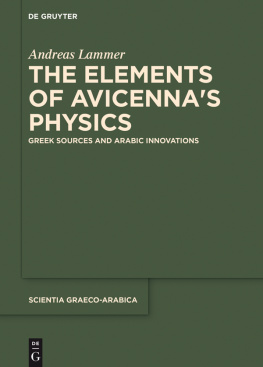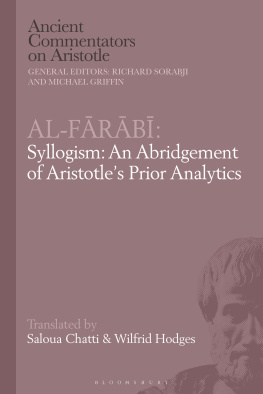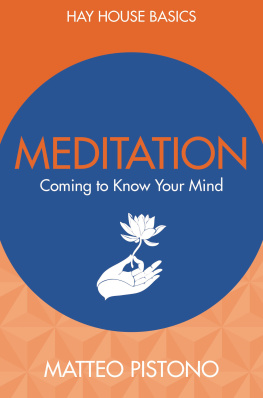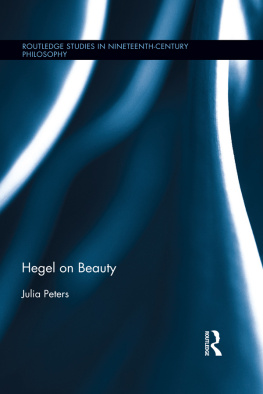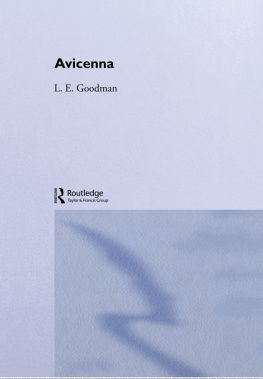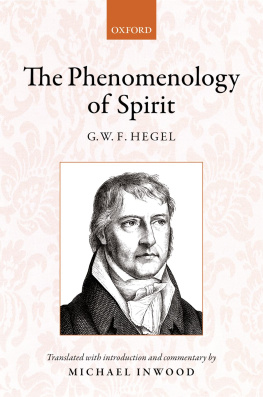Cosci Matteo - The aftermath of syllogism: Aristotelian logical argument from Avicenna to Hegel
Here you can read online Cosci Matteo - The aftermath of syllogism: Aristotelian logical argument from Avicenna to Hegel full text of the book (entire story) in english for free. Download pdf and epub, get meaning, cover and reviews about this ebook. City: London;New York;Oxford;New Delhi;Sydney, year: 2019;2017, publisher: Bloomsbury UK;Bloomsbury Academic, genre: Romance novel. Description of the work, (preface) as well as reviews are available. Best literature library LitArk.com created for fans of good reading and offers a wide selection of genres:
Romance novel
Science fiction
Adventure
Detective
Science
History
Home and family
Prose
Art
Politics
Computer
Non-fiction
Religion
Business
Children
Humor
Choose a favorite category and find really read worthwhile books. Enjoy immersion in the world of imagination, feel the emotions of the characters or learn something new for yourself, make an fascinating discovery.
- Book:The aftermath of syllogism: Aristotelian logical argument from Avicenna to Hegel
- Author:
- Publisher:Bloomsbury UK;Bloomsbury Academic
- Genre:
- Year:2019;2017
- City:London;New York;Oxford;New Delhi;Sydney
- Rating:5 / 5
- Favourites:Add to favourites
- Your mark:
- 100
- 1
- 2
- 3
- 4
- 5
The aftermath of syllogism: Aristotelian logical argument from Avicenna to Hegel: summary, description and annotation
We offer to read an annotation, description, summary or preface (depends on what the author of the book "The aftermath of syllogism: Aristotelian logical argument from Avicenna to Hegel" wrote himself). If you haven't found the necessary information about the book — write in the comments, we will try to find it.
Cosci Matteo: author's other books
Who wrote The aftermath of syllogism: Aristotelian logical argument from Avicenna to Hegel? Find out the surname, the name of the author of the book and a list of all author's works by series.
The aftermath of syllogism: Aristotelian logical argument from Avicenna to Hegel — read online for free the complete book (whole text) full work
Below is the text of the book, divided by pages. System saving the place of the last page read, allows you to conveniently read the book "The aftermath of syllogism: Aristotelian logical argument from Avicenna to Hegel" online for free, without having to search again every time where you left off. Put a bookmark, and you can go to the page where you finished reading at any time.
Font size:
Interval:
Bookmark:
Bloomsbury Studies in the Aristotelian Tradition
General Editor:
Marco Sgarbi, Universit Ca Foscari, Italy
Editorial Board
Klaus Corcilius (University of California, Berkeley, USA); Daniel Garber (Princeton University, USA); Oliver Leaman (University of Kentucky, USA); Anna Marmodoro (University of Oxford, UK); Craig Martin (Oakland University, USA); Carlo Natali (Universit Ca Foscari, Italy); Riccardo Pozzo (Consiglio Nazionale delle Ricerche, Rome, Italy); Rene Raphael (University of California, Irvine, USA); Victor M. Salas (Sacred Heart Major Seminary, USA); Leen Spruit (Radboud University Nijmegen, The Netherlands).
Aristotles influence throughout the history of philosophical thought has been immense and in recent years the study of Aristotelian philosophy has enjoyed a revival. However, Aristotelianism remains an incredibly polysemous concept, encapsulating many, often conflicting, definitions. Bloomsbury Studies in the Aristotelian Tradition responds to this need to define Aristotelianism and give rise to a clear characterization.
Investigating the influence and reception of Aristotles thought from classical antiquity to contemporary philosophy from a wide range of perspectives, this series aims to reconstruct how philosophers have become acquainted with the tradition. The books in this series go beyond simply ascertaining that there are Aristotelian doctrines within the works of various thinkers in the history of philosophy, but seek to understand how they have received and elaborated Aristotles thought, developing concepts into ideas that have become independent of him.
Bloomsbury Studies in the Aristotelian Tradition promotes new approaches to Aristotelian philosophy and its history. Giving special attention to the use of interdisciplinary methods and insights, books in this series will appeal to scholars working in the fields of philosophy, history and cultural studies.
Available titles:
Elijah Del Medigo and Paduan Aristotelianism, Michael Engel
Phantasia in Aristotles Ethics, edited by Jakob Leth Fink
Pontanos Virtues, Matthias Roick

Marco Sgarbi and Matteo Cosci
L OGICIAN : Here it is an example of a syllogism.
The cat has four paws.
Isidore and Fricot both have four paws.
Therefore Isidore and Fricot are cats.
O LD G ENTLEMAN: Well, my dog has got four paws.
L OGICIAN: Then its a cat.
O LD G ENTLEMAN: So then, logically speaking,
my dog must be a cat?
L OGICIAN: Logically, yes.
But the contrary is also true.
E. Ionesco, Rhinocros, act one (1959)
A syllogism, according to Aristotle, is an argument in which, certain premises being posited, something other than what was laid down results by necessity because these premisses are. In the book entitled Prior Analytics, from which this initial definition comes (I, 24b, 18), the first theory of syllogistic reasoning was set forth, and it was presented in a way that was already highly developed. The syllogistic heritage left by Aristotle, however conspicuous, was discussed and reworked by his pupil Theoprasthus while he was still alive. Syllogism and its possibilities of inference were tested and developed even more during the Hellenistic age, mainly by Stoics, during the imperial age due to the prominent contributions by later Peripateticians such as Aristo of Alexandria and Boethus of Sidon, and during late antiquity and the early middle ages, with many exegetes and commentators who profitably commented on the Aristotelian texts. These latter in particular often reformulated Aristotles teachings in syllogistic-ish fashion and overall expanded upon his original reflection on the matter through their eager activity of retake, criticism and ordering. In this way they originated a very elaborate set of syllogistic doctrines (although not always well integrated and consistent). A very strong impulse on this object of study was certainly that given by Severinus Boethius, by way of his twofold translation of Prior Analytics and his own treatises, the De syllogismo cathegorico, the De hypotheticis syllogismis and the Introductio ad syllogismos cathegoricos. As time passed, scientific syllogism became the logical key-structure of demonstrative knowledge; its preeminence lasted and flourished with neither interruption nor competitors for centuries.
The purpose of the present volume is to analyze the lines of continuity and/or discontinuity that the fortune of scientific syllogism enjoyed in the history of philosophy and particularly in the long period of time from Avicenna to Hegel. What follows is a short introductory overview on its manifold contributions on the matter, leaving to the reader the reference to the subsequent essays needed for further depth on the subject.
The first essay of this collection deals with the age of Medieval Islamic philosophy, in which the incubation and development of the Aristotelian logical knowledge is strong. In his contribution, Allan Bck examines the reception and reworking of the syllogistic doctrine by Avicenna, considering some of his additional specifications. In particular, Avicennas presupposition of the actual existence of the involved terms is noteworthy, together with his introduction of some complex variables, such as the temporal duration implied in existential assertions, the modal value in effect, and the status of the quiddities under analysis (whether the essence of the object should be understood in itself, in re or in intellectu). Taking into account such additional conditions has inevitable repercussions on the following conversion rules, as in the case of mixed-modal syllogisms. Regarding the latter, Avicenna chose to maintain the stance set by Aristotle, Alexander and Philoponus against the innovatory corrections being brought by the majority of the remaining commentators. Without going into detail, it is interesting to ascertain that some of the logical positions defended by Avicenna actually depend on metaphysical views (not vice versa) as, for example, the fact that the existential condition required by propositions of logical necessity seems to be satisfied, if not by a hypothetical existence in the intellect, by an actual existence within the divine mind, being it the supreme guarantor of the kingdom of necessity.
After the splendour of medieval logic, and scholastic logic in particular, the fortunes of syllogism were largely reduced by a certain humanistic ideology that was hostile, as a matter of principle, to the excessive formalism of Christian aristotelianism which had been felt as the West thoughts cumbersome inheritance. Such a humanistic ideology was carried out in an increasingly prejudiced way against scholasticism, its logic, and everything one might presume it represented (verbosity, sophistry, murkiness and so on). As we can learn, for instance from Lorenzo Valla as stated in his Dialectical Disputations, various accusations were addressed at that time against scholastic logic. Apparently, those accusations self-nourished until they became so widespread that they have influenced even our sector of studies up until a few decades ago. The content of those critiques were basically the charges of excessive formalism, of making abstractions without actual meaning, of ruining the beauty of classical Latin in favour of an almost made-up technical language whose grammar did not take into account the mundane and which disregarded the ordinary common manner of speaking. In this way the preconceived stereotype was reinforced, with the result that scholastic logic and syllogism as its key instrument were basically regarded as useless and worthless exercises. In his contribution, Alan R. Perreiah is capable of showing the superficiality of such judgements as gratuitous, misleading, and demonstrably false, and that, no matter how widespread, they were built on weak and self-conditioned foundations. In fact, during the Renaissance, there was an appreciation of the traditional logical studies which is proven by an impartial analysis of the publications and the editorial market on the subject between the fifteenth and sixteenth centuries. During this time, printed works on Scholastic logic greatly outnumber that of humanistic literature intended for a broad audience (e.g. Latin and Greek classics). This is a telling state of affairs that provides evidence in regard to a rather lively continuity of interest (and corrects much of what was believed up to a short time ago on this matter). So one can perhaps affirm that the history of syllogism in the Renaissance period remains to be fully covered beyond the reigning prejudice against it. Such a history remains to be investigated more thoroughly, perhaps in universities or religious collegesenvironments less exposed to the influence of those who would neglect the medieval acquisitions without being aware of, or willing to give credit to, those vertiginous philosophical developments previously reached in the field of logic and, notably, in the theory of syllogism.
Font size:
Interval:
Bookmark:
Similar books «The aftermath of syllogism: Aristotelian logical argument from Avicenna to Hegel»
Look at similar books to The aftermath of syllogism: Aristotelian logical argument from Avicenna to Hegel. We have selected literature similar in name and meaning in the hope of providing readers with more options to find new, interesting, not yet read works.
Discussion, reviews of the book The aftermath of syllogism: Aristotelian logical argument from Avicenna to Hegel and just readers' own opinions. Leave your comments, write what you think about the work, its meaning or the main characters. Specify what exactly you liked and what you didn't like, and why you think so.

